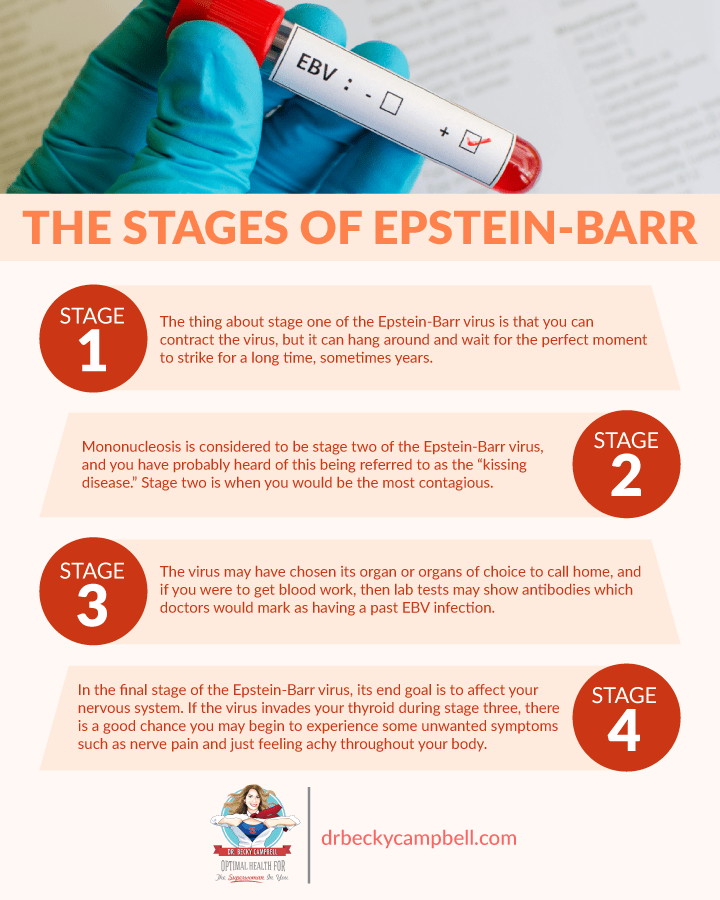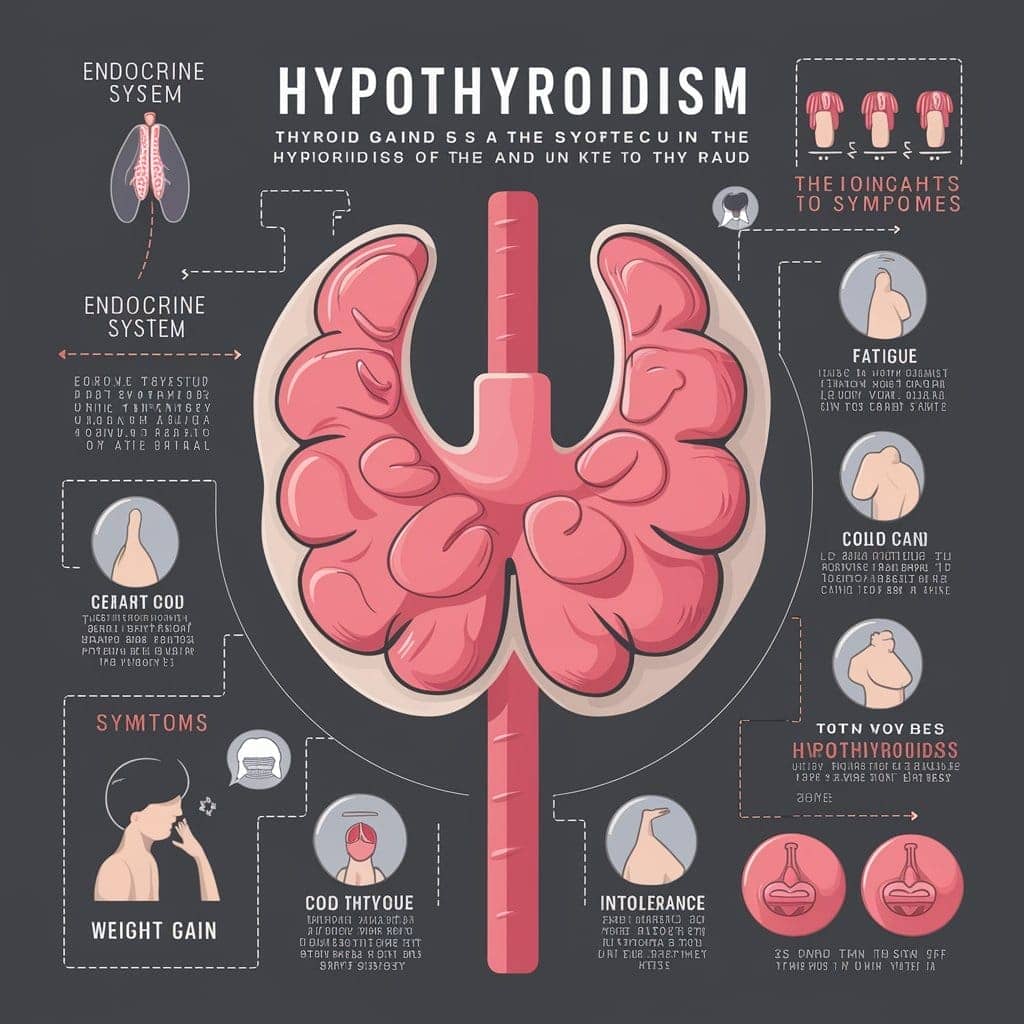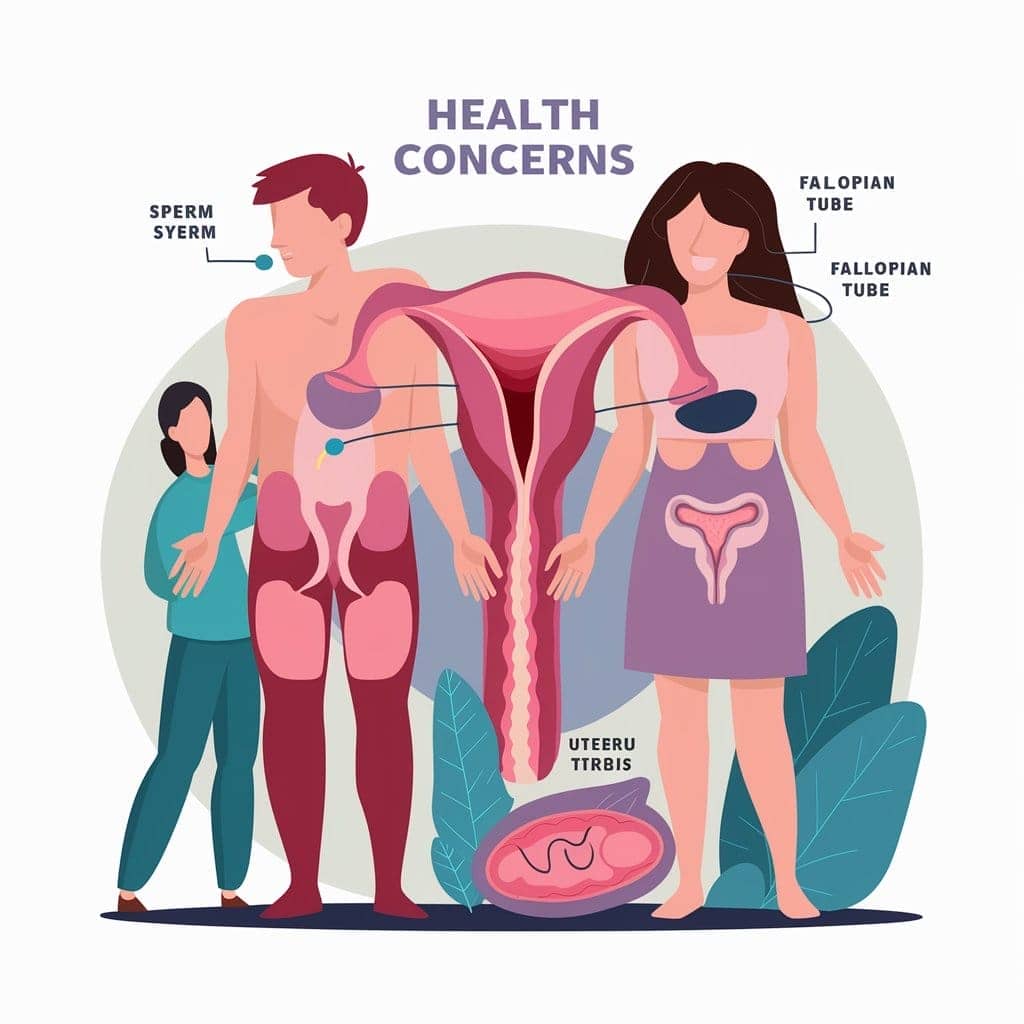The Epstein-Barr virus (EBV) has long been associated with infectious mononucleosis, but recent studies suggest a surprising link between EBV and thyroid disorders. This connection raises intriguing questions about the potential impact of EBV on thyroid health and the innovative treatments being explored. For instance, it’s estimated that up to 90% of the global population may carry latent EBV, complicating the landscape of thyroid disease management.
Given the pervasive nature of EBV, understanding its role in thyroid dysfunction is critical. Historically, antiviral therapies, immune-modulating drugs, and lifestyle changes have been the cornerstone of treatment. Remarkably, researchers are now delving into targeted therapies that could inhibit EBV replication and alleviate thyroid symptoms, offering new hope for patients affected by both. The intersection of virology and endocrinology continues to drive compelling advancements in thyroid care.

The Connection Between Epstein-Barr Virus and Thyroid Diseases
The Epstein-Barr virus (EBV) is a common virus that most people contract at some point in their lives. Surprisingly, EBV is linked to several thyroid diseases, raising concerns among health professionals. Understanding this connection is crucial for effective treatment.
How EBV Affects Thyroid Health
EBV can invade thyroid cells, causing inflammation and disruption. This inflammation may trigger autoimmune responses, such as Hashimoto’s thyroiditis. As a result, the thyroid can become underactive.
Similarly, EBV can cause Graves’ disease by overstimulating the thyroid gland. This leads to an overproduction of thyroid hormones. Both conditions require careful management.
Research Findings on EBV and Thyroid Diseases
Studies have shown that individuals with chronic EBV infections have a higher risk of developing thyroid diseases. Researchers are exploring this link to develop better diagnostic tools. Early detection could significantly improve patient outcomes.
Research also indicates that stress and weakened immune systems can exacerbate EBV’s impact. Therefore, maintaining a healthy lifestyle is essential. Regular check-ups are also important for those at risk.
Steps for Managing EBV-Related Thyroid Issues
Managing EBV-related thyroid problems involves a multifaceted approach. Medications like antivirals and immune modulators are often prescribed. These help control the virus and reduce inflammation.
- Regular monitoring of thyroid levels
- Implementing stress management techniques
- Maintaining a healthy diet and exercise routine
By following these steps, patients can manage their symptoms more effectively. Consulting with a healthcare provider is essential. They can tailor a treatment plan that meets individual needs.
The Hidden Cause of Fatigue and Hypothyroid – A Virus
Common Thyroid Conditions Associated with Epstein-Barr Virus
The Epstein-Barr virus (EBV) can lead to a range of thyroid conditions. Notably, it often triggers autoimmune diseases that impact thyroid function. Below are some common thyroid conditions associated with EBV.
Hashimoto’s Thyroiditis
Hashimoto’s thyroiditis is an autoimmune disorder where the immune system attacks the thyroid gland. This leads to chronic inflammation and an underactive thyroid, known as hypothyroidism.
People with Hashimoto’s typically experience fatigue, weight gain, and depression. Early diagnosis and treatment are essential to manage symptoms and prevent complications.
Graves’ Disease
Graves’ disease is another autoimmune thyroid condition linked to EBV. It causes the thyroid to become overactive, resulting in hyperthyroidism.
Symptoms include weight loss, rapid heartbeat, and irritability. Treatments aim to regulate thyroid hormone production and alleviate symptoms.
Thyroid Cancer
While less common, research suggests a potential link between EBV and thyroid cancer. This connection is still being studied extensively by scientists.
Early detection is crucial for effective treatment. Regular screenings are recommended for those at higher risk.
Diagnosing Epstein-Barr Virus Induced Thyroid Conditions
Diagnosing thyroid conditions caused by the Epstein-Barr virus (EBV) can be complex. Medical professionals use several methods to pinpoint the exact issue. Early detection is crucial for effective management.
Blood tests are the most common diagnostic tool. These tests can reveal abnormal thyroid hormone levels and antibodies, indicating an autoimmune response. Normal thyroid function tests might include TSH, T3, and T4 levels.
In some cases, doctors may order an ultrasound to examine the thyroid gland. This imaging test helps detect abnormalities, such as nodules or inflammation. It’s a non-invasive way to get a closer look at the thyroid.
A comprehensive approach often includes reviewing the patient’s medical history and symptoms. Physicians might also look for markers of past EBV infections. Combining these methods ensures an accurate diagnosis.
Treatments for Epstein-Barr Virus-Induced Thyroid Conditions
Treating thyroid conditions caused by the Epstein-Barr virus (EBV) involves multiple approaches. The goal is to manage symptoms and control the viral impact. These treatments are tailored to each individual’s needs.
Antiviral medications can help reduce EBV levels in the body. These drugs aim to limit the virus’s ability to replicate. Early intervention often results in better outcomes.
Immune-modulating drugs are another option. These medications help to regulate the immune system. They are especially useful in treating autoimmune thyroid conditions like Hashimoto’s thyroiditis.
For those with an overactive thyroid, such as in Graves’ disease, antithyroid drugs may be prescribed. These medications can help normalize thyroid hormone levels. In more severe cases, radioactive iodine treatment might be considered.
- Regular monitoring of thyroid hormone levels
- Implementing lifestyle changes: stress management, balanced diet, exercise
- Supplements: selenium and vitamin D may support thyroid health
Patients often benefit from a comprehensive treatment plan. This approach typically combines medication, lifestyle changes, and regular health check-ups. Consulting with a healthcare provider ensures the best possible care.
Finally, new research and innovative treatments are being explored. These could offer even more options for managing EBV-induced thyroid conditions. Staying informed about these advancements is crucial for patients and healthcare providers.
Lifestyle Changes to Manage Epstein-Barr Virus-Induced Thyroid Conditions
Making lifestyle changes can significantly improve the management of thyroid conditions caused by the Epstein-Barr virus (EBV). These changes focus on reducing stress, eating well, and staying active. Small adjustments can make a big difference.
Stress management is crucial for maintaining thyroid health. Chronic stress can worsen EBV symptoms and thyroid issues. Techniques like yoga, meditation, and deep-breathing exercises can help.
- Engage in regular physical activity
- Practice mindfulness meditation
- Ensure you get enough sleep
A balanced diet supports overall health and thyroid function. Foods rich in antioxidants, selenium, and iodine are beneficial. Avoiding processed foods and sugars can also help mitigate symptoms.
Regular exercise plays an essential role in managing thyroid conditions. It boosts metabolism and supports immune function. Activities like walking, swimming, and light weightlifting are excellent choices.
Maintaining social connections is another vital aspect. A strong support system can ease the emotional burden of managing a chronic condition. Talking to friends and family about your health journey can be very comforting.

Frequently Asked Questions
The Epstein-Barr virus (EBV) and its connection to thyroid conditions have prompted many questions. Below are the most common inquiries, answered for better understanding.
1. How does Epstein-Barr virus affect the thyroid gland?
Epstein-Barr virus can invade thyroid cells, causing inflammation and disrupting normal function. This inflammation may trigger autoimmune responses, like Hashimoto’s thyroiditis or Graves’ disease.
The result is either an underactive or overactive thyroid, both conditions needing medical attention. Understanding this mechanism helps in early diagnosis and targeted treatment strategies.
2. What are the symptoms of EBV-induced thyroid disorders?
Symptoms vary between underactive (hypothyroidism) and overactive (hyperthyroidism) conditions. Common signs include fatigue, weight fluctuations, and changes in mood.
For hypothyroidism, expect weight gain and depression; hyperthyroidism often leads to weight loss and irritability. Monitoring these symptoms helps in seeking prompt medical advice.
3. Can lifestyle changes help manage EBV-related thyroid issues?
Lifestyle changes play a vital role in managing EBV-related thyroid problems. Stress management techniques like yoga and meditation can reduce symptom severity.
A balanced diet rich in antioxidants supports overall health. Regular exercise boosts metabolism and immune function, further aiding in symptom control.
4. Are there specific tests to diagnose EBV-induced thyroid conditions?
Diagnosing these conditions often involves blood tests checking for abnormal thyroid hormone levels and antibodies. These tests indicate whether the immune system is attacking the thyroid gland.
An ultrasound might also be performed to detect abnormalities visually within the gland. Combining multiple diagnostic methods ensures accurate identification of the problem.
5. What are some advanced treatment options for EBV-related thyroid disorders?
Treatment options include antiviral medications aiming to reduce EBV levels, along with immune-modulating drugs that help regulate immune responses against the thyroid.
An emerging area of research involves targeted therapies that inhibit EBV replication within the body. Staying updated on these advancements could significantly improve patient outcomes.
Epstein Barr Virus and Thyroid Health: Everything You Need To Know
Conclusion
The link between Epstein-Barr virus and thyroid disorders underscores the need for diligent medical care and lifestyle adjustments. Understanding this connection aids in early diagnosis and effective treatment. By integrating antiviral therapies and stress management, patients can significantly improve their quality of life.
Continued research and innovation promise better solutions for managing these conditions. Staying informed and proactive is crucial for both healthcare providers and patients. By keeping abreast of the latest advancements, we can ensure optimal outcomes for those affected by EBV-induced thyroid conditions.


